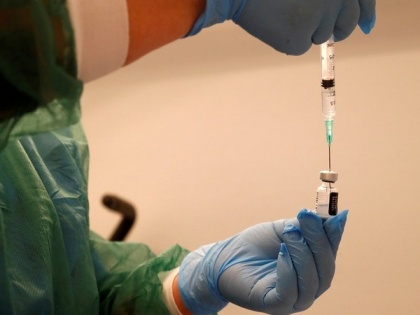COVID-19 vaccine acceptance improves when efficacy increases beyond 70 pc: Study
By ANI | Published: February 23, 2021 07:10 AM2021-02-23T07:10:20+5:302021-02-23T07:20:03+5:30
According to a study by Robert M Kaplan and Arnold Milstein, COVID-19 vaccine acceptance has improved when the efficacy of the vaccine increased beyond 70 per cent.

COVID-19 vaccine acceptance improves when efficacy increases beyond 70 pc: Study
According to a study by Robert M Kaplan and Arnold Milstein, COVID-19 vaccine acceptance has improved when the efficacy of the vaccine increased beyond 70 per cent.
"Acceptance of vaccines has been on the decline in recent years. Despite encouraging early results for coronavirus vaccine trials, achieving herd immunity requires substantial uptake. We presented scenarios varying vaccine efficacy, minor side effects, and severe reactions to a sample representative of the United States population. Vaccine acceptance improved when the efficacy increased beyond 70 per cent," read the study.
"Respondents were unaffected by the probability of minor side effects, such as a sore arm or fever lasting 24 hours. The chances of accepting the vaccine were lower when the probability of serious adverse reactions was 1/100,000 in contrast to 1/million or 1/100 million. A replication showed that the results were largely unchanged following the public announcement that the vaccines were 95 per cent effective," read the study.
Based on surveys of 1,000 US residents in August and December 2020, researchers report that the likelihood of taking a COVID-19 vaccine increased significantly if vaccine effectiveness was 70 per cent or greater or if the risk of a serious adverse reaction was one per million or less, but was unaffected by the risks of minor side effects.
Additionally, respondents surveyed in December, after the public announcement of vaccines that were 95 per cent effective, were slightly more likely to take the vaccine than those surveyed in August, according to the authors.
( With inputs from ANI )
Disclaimer: This post has been auto-published from an agency feed without any modifications to the text and has not been reviewed by an editor
Open in app